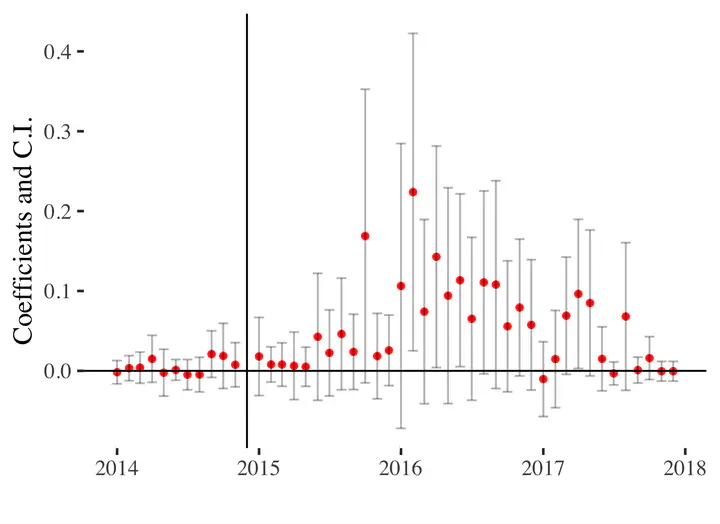Forced Migration and Social Cohesion: Evidence from the 2015/16 Mass Inflow in Germany

Abstract
A commonly expressed concern about immigration is that it undermines social cohesion in the receiving country. In this paper, we study the impact of a large and sudden inflow of asylum seekers on several indicators of social cohesion. In 2015/16, over one million asylum seekers from Syria, Afghanistan, and elsewhere arrived in Germany. Anecdotal evidence suggests that this inflow changed the public opinion on hosting asylum seekers, from being highly welcoming to fairly negative within a few months. Using individual- and county-level panel data, we test whether the evidence supports this apparent shift in attitudes. In a difference-in-differences design, we compare the attitudes of individuals in areas with large vs. small local inflows before and after the inflow. In individual survey data, we find mixed evidence of an impact on social cohesion. In a representative sample, we find no evidence that the inflow undermined social cohesion, except for a negative effect on donations to charity. In areas with high vote shares for the populist party AfD, we find that the inflow led to greater anti-immigrant sentiment and a greater concern about crime. We also show that areas with larger increases in the number of asylum seekers experienced a significant increase in anti-immigrant violence, which lasted for about two years before returning to its pre-inflow level. This effect was larger in areas with higher unemployment and greater support for AfD.
This paper was written as part of the project Preventing Social Conflict and Promoting Social Cohesion in Forced Displacement Contexts funded by the World Bank, UK Aid and the UNHCR